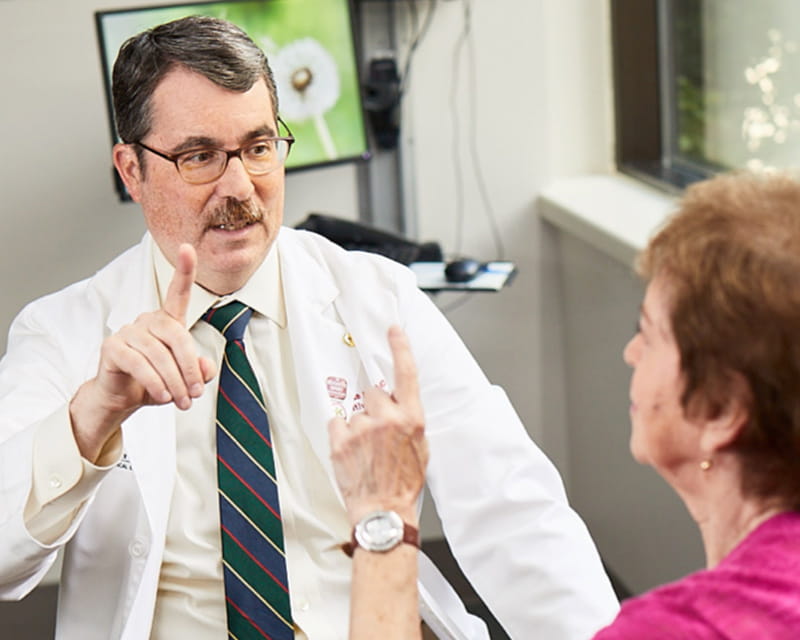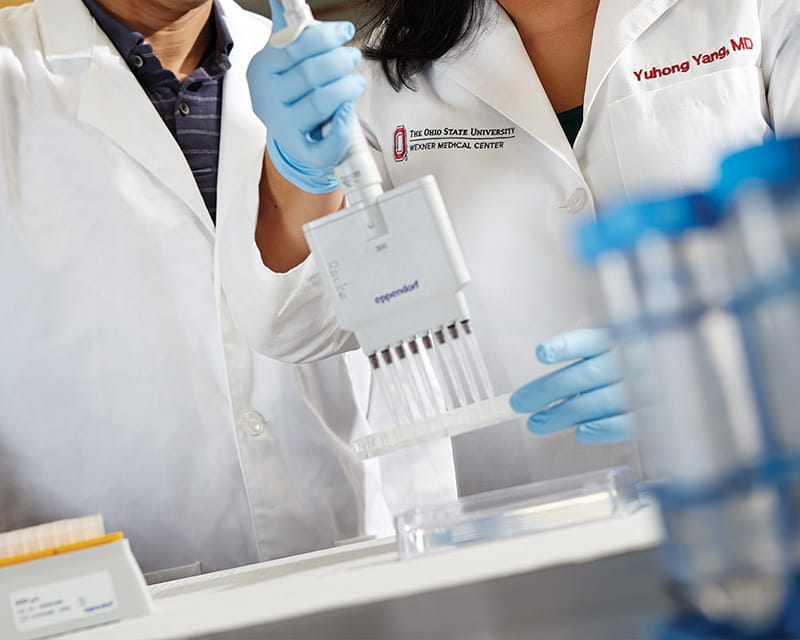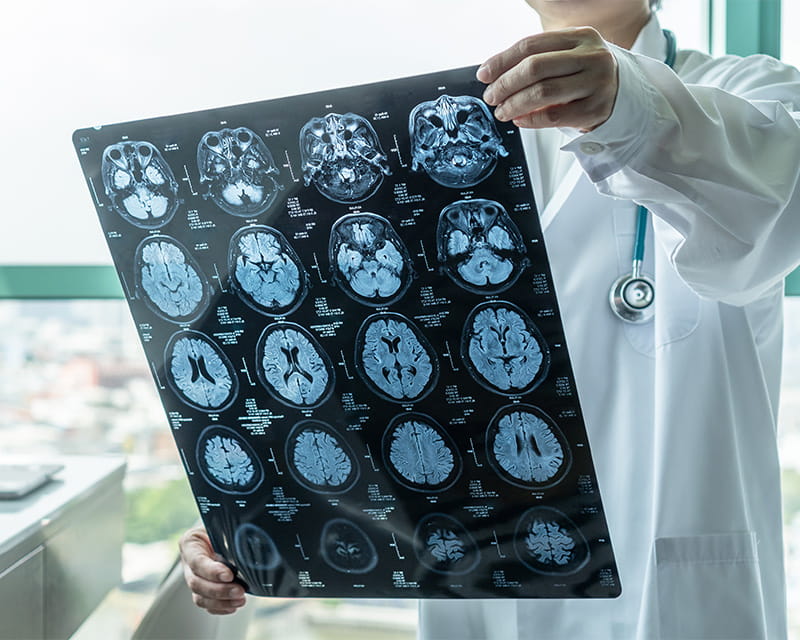
Ohio State researchers identify new biomarkers that differentiate Lewy body dementia from Alzheimer’s and Parkinson’s
 Millions of people worldwide have downloaded the Self-Administered Gerocognitive Exam (SAGE) since it was introduced in 2010. Now, thanks to a partnership between The Ohio State University Wexner Medical Center and the medical software company BrainTest, SAGE is available in a digital format. For patients who are concerned about possible cognitive impairment, the timing couldn’t be better.
Millions of people worldwide have downloaded the Self-Administered Gerocognitive Exam (SAGE) since it was introduced in 2010. Now, thanks to a partnership between The Ohio State University Wexner Medical Center and the medical software company BrainTest, SAGE is available in a digital format. For patients who are concerned about possible cognitive impairment, the timing couldn’t be better.
“As the pandemic continues, many primary care providers and neurologists are relying heavily on telehealth, and that can create challenges when you’re trying to assess a patient’s cognitive health accurately,” says neurologist Douglas Scharre, MD, director of the Division of Cognitive Neurology at the Ohio State Wexner Medical Center. “SAGE and BrainTest are good options because patients can take the tests in the comfort of their own home before a virtual or office visit. The results are accurate and equivalent to what an in-office assessment can provide in terms of identifying mild cognitive impairment, or MCI.”
Dr. Scharre designed and developed SAGE, one of the first self-administered, validated tests for detecting early cognition changes associated with MCI, Alzheimer’s disease and dementia. The pen-and-paper test and its digital equivalent, BrainTest, take 10 – 15 minutes to complete.
“These tests help identify people who are in the early stages of cognitive decline, which is when treatment is most effective,” Dr. Scharre says. “Unfortunately, people tend to delay talking to their doctor about memory or thinking problems, which they dismiss or attribute to ‘normal aging.’ Cognitive decline due to degenerative conditions like Alzheimer’s disease can sneak up on patients, and those who delay getting an evaluation may be missing out on potential treatment options.”
Dr. Scharre adds that there are many treatable causes for memory loss, including sleep apnea, thyroid or B12 deficiency, inflammatory conditions and depression. Cognitive loss due to mini-strokes can be prevented by treating high blood pressure, diabetes and elevated cholesterol. Between 50% and 75% of dementia cases are undiagnosed, untreated and unmanaged.
SAGE and BrainTest are appropriate for people who suspect they may have cognitive issues, have a family history of cognitive problems, or wonder if their brain function is on par with other people their age.
SAGE is free and available in multiple languages as a download. Patients complete the test by hand and bring it to their primary care physician’s office for scoring.
Patients interested in taking the BrainTest can download the fee-based app on a touch-screen computer or on an iPad, Android tablet or Amazon Fire tablet. A “core scoring lab” scores the test, and patients receive their results within two days. The tests are scored anonymously and confidentially by experienced, trained scorers to minimize bias and improve accuracy.
“The results make it clear where a person falls in the range of mild cognitive impairment, and health care providers don’t have to be familiar with the BrainTest or SAGE to know whether further evaluation is needed,” Dr. Scharre says.
Dr. Scharre and his colleagues in the Memory Disorders Clinic at the Ohio State Wexner Medical Center have been using SAGE for many years and have begun using BrainTest for patients who are scheduling telehealth and in-person visits. They encourage patients to take either test every six months to watch for changes in their cognition.
Learn more about SAGE by visiting the SAGE website, which includes resources for physicians, including how to score and interpret the test, as well as a link to BrainTest.
Learn more about BrainTest.

Ohio State researchers identify new biomarkers that differentiate Lewy body dementia from Alzheimer’s and Parkinson’s

Biomarker breakthroughs at Ohio State transform disease diagnosis, predictability and treatment

The Ohio State University Wexner Medical Center pushes boundaries for neurological care